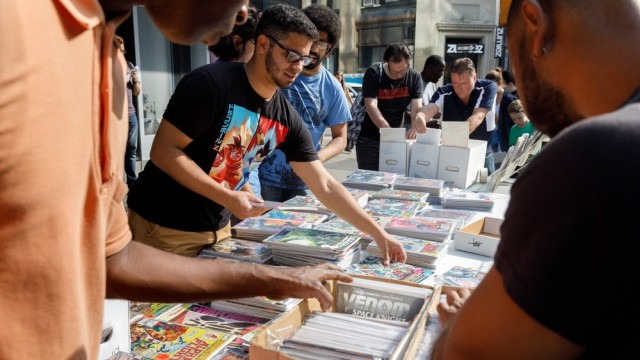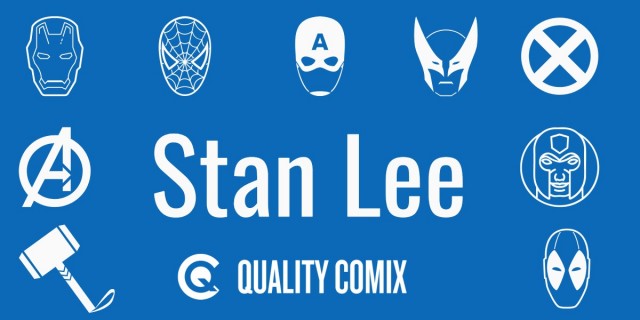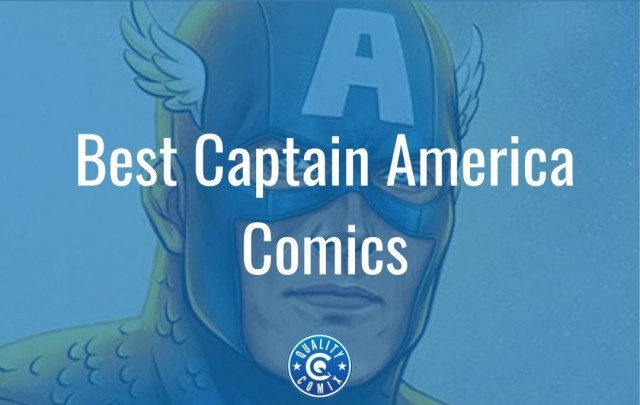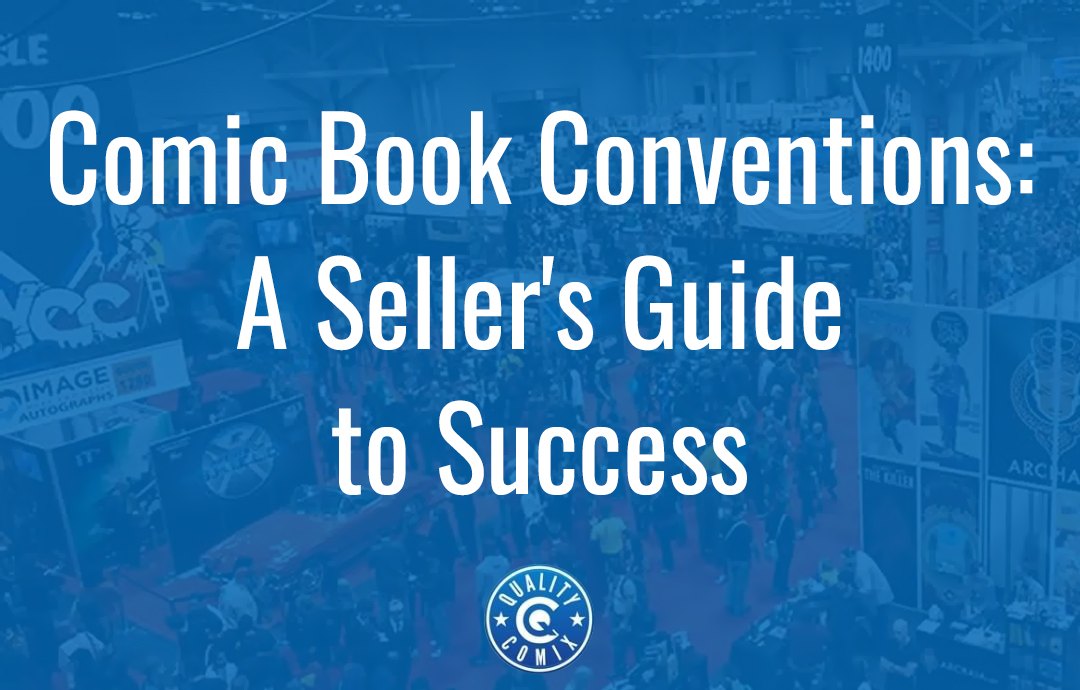
Comic conventions are some of the biggest events for comic collectors and sellers that happen every year. The big ones, like NYCC or SDCC, draw over a hundred thousand people for a weekend of revelry, celebration, and love of the medium we all embrace.
If you want to sell comics, a comic convention is a great place to do it. You can find connections and hookups you never would otherwise. Whether you have a few high-value books you want to part with for top dollar, a huge collection you want to liquidate, or a store's inventory you want to churn through over the weekend, there's a place for you in the comic convention ecosystem. The only question is, how can you make a success out of the weekend? Here are our top tips.
Before we dig in, though, one important note: this post is primarily for the people who want to set up a vendor space and sell all event long. If you intend to bring a few comics and sell them to fund your weekend adventures, that's great, but you're not going to get much out of most of the tips below. We're aiming this mostly at vendors, stores, comic flippers, and people who want to liquidate collections without selling everything at bulk rates. Basically, if you aren't planning to get a booth, you'll want to look elsewhere for tips. That's not to say we can't help, though. Check out these links:
- What's the best place to sell comic books near you?
- How to work with a comic broker to sell valuable comics.
- How to get a no-strings-attached appraisal of your collection.
That said, let's dig into our tips on selling comics at a convention.
Table of Contents
Pick the Right Convention
The first decision you need to make is what convention you want to attend. Basically, this comes down to a few factors.
First, is the convention large or small? Large conventions – think San Diego Comic-Con – are the place to be for fans, industry professionals, veterans, and producers alike. They're where all the latest and greatest news is announced, and many of the most valuable deals are made.
They're also a lot more expensive. It costs thousands to buy a table or booth, it costs a lot for a badge, and the travel and lodgings are expensive; it all adds up. You have to be pretty successful selling your comics if you want to break even, let alone turn a profit.
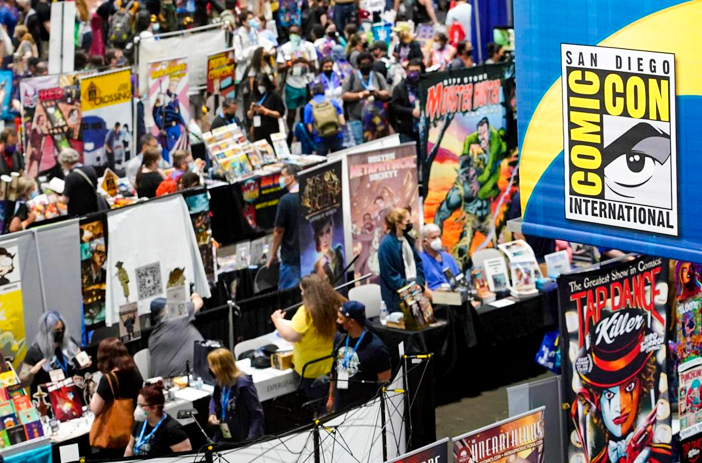
There will also be a lot more competition. When you bring your rare and valuable comics to a smaller convention, you might be the only one there with something that unique. When you go to a convention like SDCC, not only are you not the only one with rare and valuable comics, you're likely going to be out-shone by other vendors there. It takes a lot more to stand out.
Smaller conventions are cheaper, and you have more opportunities to stand out, but the audience is smaller. There's always the chance that there just won't be much interest in what you brought with you to sell, and the whole event could be a bust. It's potentially more of a gamble, but it's a gamble with lower stakes.
Our general recommendation is to start at smaller conventions so you can get a feel for what it's like to sell at these events, and once you think you're ready for it, you can step up to the big stage.
Book Your Real Estate Early
Once you've picked a convention, be ready to pull the trigger on a vendor application ASAP. Some of these conventions fill up faster than the Flash can fill out paperwork. Getting a piece of prime real estate is pretty hard, even in the best of times, but when there are thousands of vendors clamoring for the space, it's even harder. For major conventions, don't be surprised if you're passed over, especially if you aren't a store with a reputation. You often need something unique to set you apart from the other vendor applications.
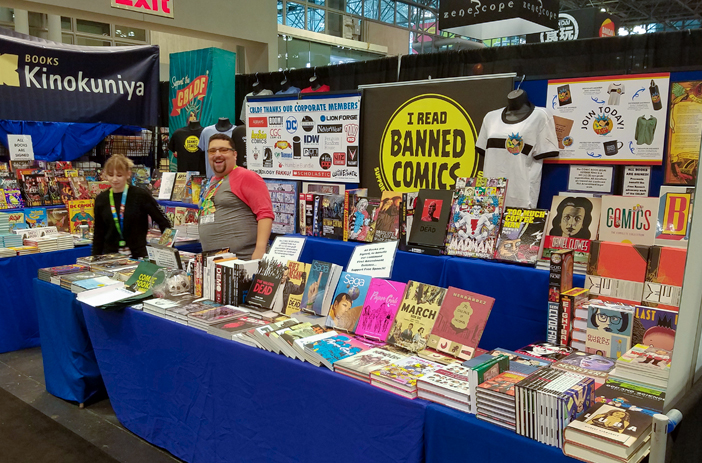
Once you know the kind of real estate you're looking at – edge row versus inner row, corner booth, table, what kind of barriers or walls you have – you can start planning your space.
Organize Your Inventory
Organization can be key to successfully selling your comics at a convention. Many people there know broadly what they want. If they have to dig through random boxes of chaff, they'll be less likely to do so when they can go to a different, more organized booth. On the other hand, if you have a box of alphabetized X-men, a box of Image comics, or a whole display of graded keys, these are easier for a potential buyer to look through, spot what they want to buy, and strike a deal.
Bookkeeping is also key. Computers – more accurately, tablets with point-of-sale software and inventory apps on them, like League of Comic Geeks or whatever else you use for your normal sales – can be a godsend. You need to know what you have, the price you want to sell it for (and the price you bought it for, if applicable), where it is, and have an easy path to recording the transaction.
Knowing your pricing is also critical. Know what you're looking to get out of your books. Decide if you're willing to negotiate to make a sale, and if so, what your low point would be. Know when to draw the line and say no to lowballers. Haggling, negotiation, and sales are all part of the package, and practicing in a slower-paced environment is part of why smaller conventions are a good place to start.
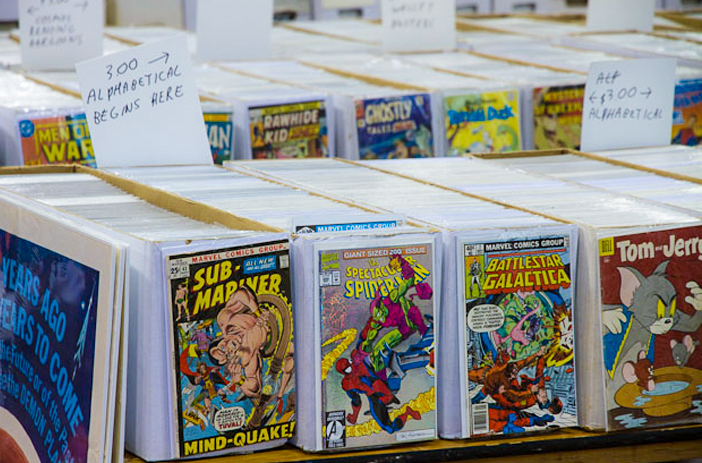
Bring a mixture of inventory. You aren't going to make bank off the bulk boxes, but if all you bring are high-value keys that nobody bites on buying, you're equally out of luck. Bring a mixture of comics priced for the deal-hunters and flagship comics to sell for the big bucks.
Some people also thrive on haggling and do something like an unpriced box: "Pick up to five comics and we'll make a deal." This can be great if you're good at sales and haggling, but if you don't want to spend that much personal attention, it's a big distraction. Something to consider if it's up your alley.
Build Visual Appeal
Table and shelf appeal is a big element of drawing people to your table. The booths with large walls and display racks stand out more than the booths with a flat table lined with boxes. You might even want to print off big posters and advertising signs to draw more attention. Just make sure to know (and stay within) the space limits of your booth. Also, don't forget to follow the rules of the convention. They might not allow LED signs or anything that makes noise, for example. Be respectful of the people around you since you're going to be packed in with other vendors like capitalist sardines.
Maintenance of your space is important here. People are going to be pawing through your boxes, picking up and putting things down, and things are going to get shuffled. It's a constant game of attrition to reorganize and settle your table, but you need to do it so you don't look like a picked-over charcuterie board.
Don't forget advertising and branding for you and your store. Business cards with links to your storefront and online inventory (or an eBay account with active listings) can go a long way toward building a larger customer base.
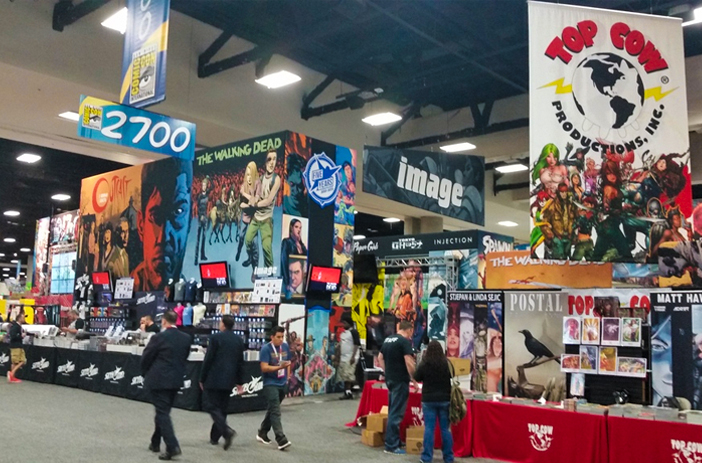
Another small detail you might consider is cleaning everything up before you head out. What do I mean?
- Get fresh longboxes with crisp corners and clear labels, rather than dingy, banged up, or yellowed old boxes.
- Sort through and switch out bags and boards from comics with older, clouded, scratched, or dirty bags or boards for a crisper appearance.
- Dust everything so nobody pulls a comic out of a box and gets a bonus allergy attack.
- Spruce up your table with a tablecloth. Not only can you hide inventory under it more easily, but it also makes you stand out a bit more from the rest.
It can be an investment of both time and supplies, but it can make a lot of difference in how professional your table appears.
Make the Purchase Process Easy
Do everything in your power to make the act of purchasing a comic as easy as possible. Invest in a Square system and have it set up to accept as many different kinds of payment as possible. Have redundancy in case the event center's cell signal is spotty, and their internet access is crowded. Accept cash as a backup.
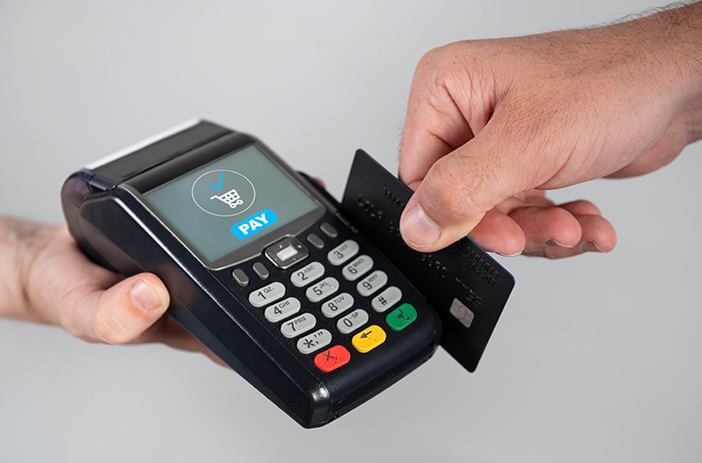
Checks… well, checks are awful, and most people under 90 years old don't carry them, so that's up to you. Even crypto could be an option if you're willing to deal with it. The easier it is to buy a comic, the more you'll sell.
Don't Forget Security
Unfortunately, in the press of a crowd, it's easy for someone to wait until you're occupied with another transaction and walk off with a book. The more valuable a book is, the harder it should be to access. For extremely valuable comics, you might even consider lugging in a lockable display, though this might be overkill, especially if equally or more valuable comics two booths down are just sitting raw on a table.
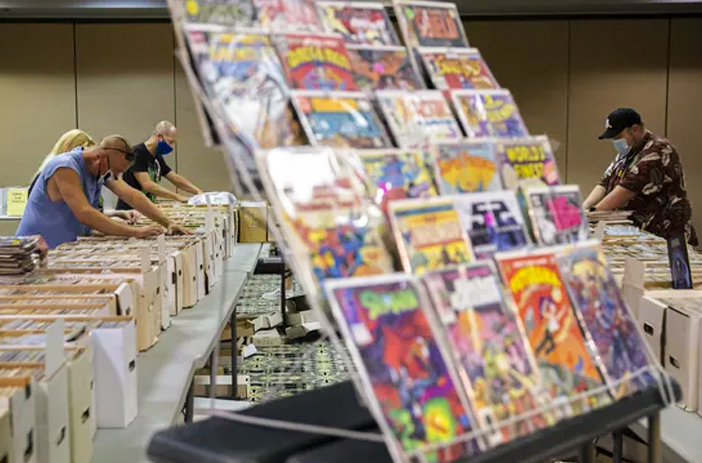
Moreover, don't forget the possibility of theft from a car or truck or even a hotel room. Consider the angles and take steps to secure your inventory, especially if you aren't around to keep an eye on it.
Assorted Additional Tips
Some things don't fit into other categories but are worth adding as tips to help out with selling. Let's go through them.
One idea is to use small whiteboards for your signage. It's easier to erase and rewrite signage on a whiteboard than it is to scratch out and edit prices on paper labels, especially if those are stuck to the front of boxes. You can also have a talented artist doodle on the whiteboards for added appeal, changing them up periodically.
A big one is to make sure you aren't alone. Selling at a convention is a ton of work, and you'll be fielding people, questions, and transactions from all angles. Have at least one other person there with you to help out. Ideally, bring a team and work in shifts so everyone can take breaks. Make sure they're people you trust and who can make deals on your behalf.
Don't forget to dress well. You don't need to be dressed up in a suit or wearing your favorite superhero cosplay, but wearing a nicer and fitted set of clothes can help you stand out from the crowds.
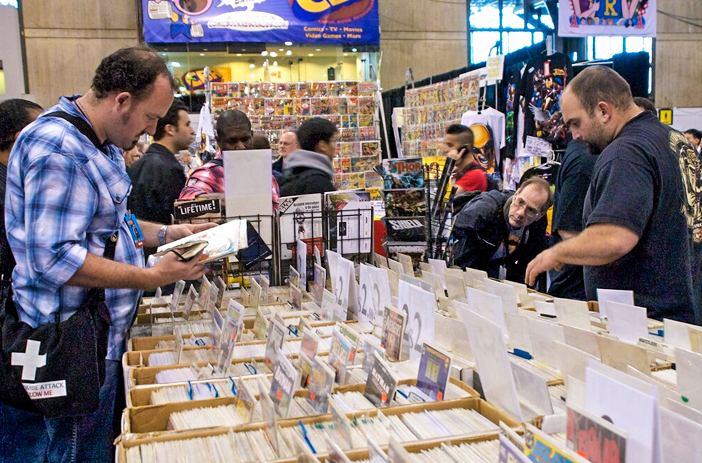
Another thing you can do is supplement your comics with other things people might want. You can have value-added pack-ins and freebies for people who buy, and you can have other kinds of merchandise like stickers, shirts, or figures to go along with the comics. The choice is yours, of course, but they can be very attractive.
Another detail you might want to look into is insurance for the collection. You should have insurance on your inventory, but make sure it covers inventory in transit (in case something terrible like a car accident happens on the way to the convention) and that it covers disaster at the event itself. The event might also have its own coverage, so read up to know if you need your own there.
Of course, all of this is a pretty big hassle if you're a one-time seller just looking to get rid of a collection or a few valuable comics. If you're in that kind of situation, I have a much better option for you. Just click here. As one of the biggest vendors of high-value comics, we love buying and selling the books we all enjoy. We'll help you appraise what you have and figure out what to do with it, and if the deal is right, even buy the collection from you. There's no obligation, so check it out!

